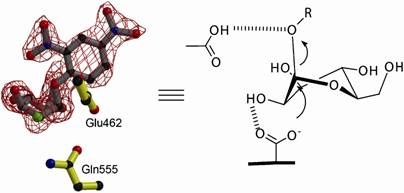Annulation made easy
Chinese scientists report a new and economical route to polycyclic aromatic compounds
Jin-Heng Li and co-workers from Hunan Normal University and Wenzhou University have developed an iron-catalysed intramolecular annulation route to the synthesis of naphthalen-1-ol and anthracen-1-ol core structures. Li believes that this new atom-economical method will provide a potential route to designing the achiral/chiral hydroxy-containing ligands. Surprisingly, the iron catalyst is the commercially available iron trichloride (FeCl3) which is cheap and affordable. Li explains that this reaction presents the first example of an intramolecular annulation reaction of an alkyne with a carbon nucleophile for the synthesis of substituted naphthalenol and anthracenol structures.

Transition metal-catalysed annulation reactions have previously been reported but suffer from several disadvantages such as harsh conditions, inaccessible substrates and sometimes expensive catalysts. The route developed by Li and co-workers is more atom economical overall, and uses a cheap iron-catalyst and starting materials that are easily prepared.
Li believes the mechanism of this reaction involves a Diels-Alder process, but points out that this will be the next challenge for chemists in this field; trapping the iron intermediates of the reaction in order to define the mechanism of the process.
Original publication: Zhi-Qiang Wang, Chem. Commun., 2009.
Most read news
Other news from the department science

Get the chemical industry in your inbox
By submitting this form you agree that LUMITOS AG will send you the newsletter(s) selected above by email. Your data will not be passed on to third parties. Your data will be stored and processed in accordance with our data protection regulations. LUMITOS may contact you by email for the purpose of advertising or market and opinion surveys. You can revoke your consent at any time without giving reasons to LUMITOS AG, Ernst-Augustin-Str. 2, 12489 Berlin, Germany or by e-mail at revoke@lumitos.com with effect for the future. In addition, each email contains a link to unsubscribe from the corresponding newsletter.
Most read news
More news from our other portals
See the theme worlds for related content
Topic world Synthesis
Chemical synthesis is at the heart of modern chemistry and enables the targeted production of molecules with specific properties. By combining starting materials in defined reaction conditions, chemists can create a wide range of compounds, from simple molecules to complex active ingredients.

Topic world Synthesis
Chemical synthesis is at the heart of modern chemistry and enables the targeted production of molecules with specific properties. By combining starting materials in defined reaction conditions, chemists can create a wide range of compounds, from simple molecules to complex active ingredients.



























































